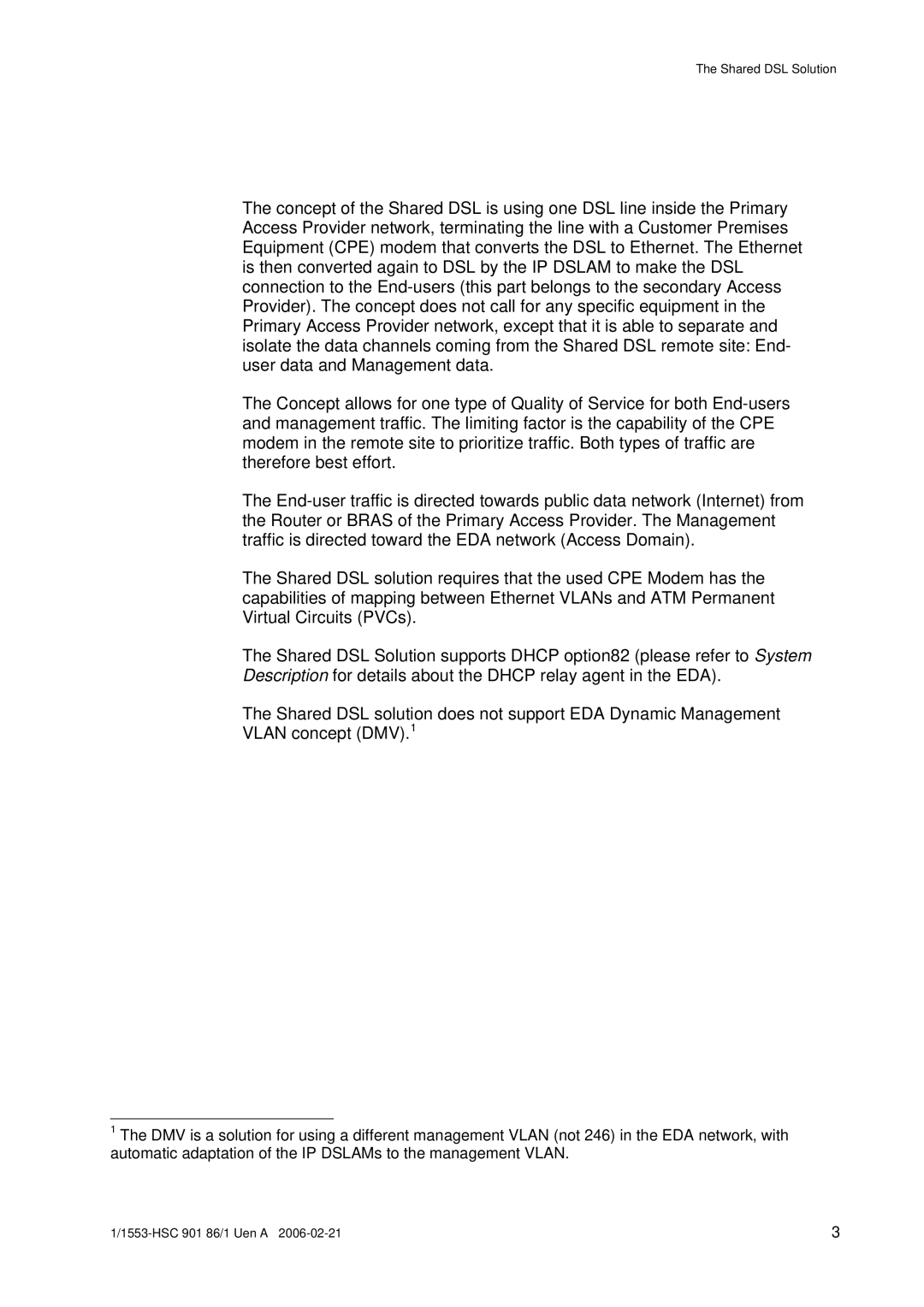The Shared DSL Solution
The concept of the Shared DSL is using one DSL line inside the Primary Access Provider network, terminating the line with a Customer Premises Equipment (CPE) modem that converts the DSL to Ethernet. The Ethernet is then converted again to DSL by the IP DSLAM to make the DSL connection to the
The Concept allows for one type of Quality of Service for both
The
The Shared DSL solution requires that the used CPE Modem has the capabilities of mapping between Ethernet VLANs and ATM Permanent Virtual Circuits (PVCs).
The Shared DSL Solution supports DHCP option82 (please refer to System Description for details about the DHCP relay agent in the EDA).
The Shared DSL solution does not support EDA Dynamic Management
VLAN concept (DMV).1
1The DMV is a solution for using a different management VLAN (not 246) in the EDA network, with automatic adaptation of the IP DSLAMs to the management VLAN.
3 |
